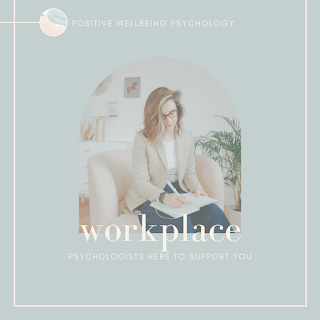What is Attention-deficit/hyperactivity disorder (AD/HD or ADHD)?
ADHD is shown to be a neurodevelopmental disorder of the brain and behaviour. It affects about 3 to 5% of children. The symptoms have been shown to usually start before seven years of age. The global prevalence for children is approximately 5%, with a wide variability dependent on research methodologies utilised in studies.
Attention Deficit Hyperactivity Disorder, ADHD, is one of the most common mental health disorders that have been found to develop in children. Children with ADHD have experienced impaired functioning in multiple settings, including home, school, and in relationships with peers. If untreated, the ADHD can have long-term adverse effects into adolescence and adulthood.
In this article we explore the common symptoms of ADHD, the different subtypes of ADHD, and evidence-based treatment approaches including psychotherapy with a registered ADHD psychologist melbourne.
What are the common symptoms of ADHD?
Impulsiveness: acting before thinking of consequences, jumping from one activity to another, disorganization, tendency to interrupt other peoples' conversations.
Hyperactivity: restlessness, often characterized by an inability to sit still, fidgeting, squirminess, climbing on things, restless sleep.
Inattention: easily distracted, daydreaming, not finishing work, difficulty listening.
What are the different subtypes of ADHD?
ADHD has been found to have three subtypes, including:
Predominantly hyperactive-impulsive: Most symptoms exhibited by the individual are in the hyperactivity-impulsivity categories. Fewer symptoms of inattention are present, although inattention may still be present to some degree.
Predominantly inattentive: The majority of symptoms are in the inattention category and fewer of hyperactivity-impulsivity are present, although hyperactivity-impulsivity may still be present to some degree. Children with this subtype are less likely to act out or have difficulties getting along with other children. They may sit quietly, but they are not paying attention to what they are doing. Therefore, the child may be overlooked, and parents and teachers may not notice that he or she has ADHD.
Combined hyperactive-impulsive and inattentive: The individual exhibits symptoms of inattention and hyperactivity-impulsivity. Most children have the combined type of ADHD.
What about the recommended treatment approach for ADHD?
Treatments can relieve many of the disorder's symptoms, but there is no cure. With treatment, individuals can lead successfully and productive lives. Methods of treatment involves a combination of medications, behaviour modifications, life-style changes, and therapy.
What does psychotherapy with a psychologist look like for a child presenting with ADHD?
Different types of psychotherapy are used for ADHD. Behavioural therapy aims to help a child change his or her behaviour. It might involve practical assistance, such as help organizing tasks or completing schoolwork, or working through emotionally difficult events. Behavioural therapy also teaches a child how to monitor his or her own behaviour.
Learning to give oneself praise or rewards for acting in a desired way, such as controlling anger or thinking before acting, is another goal of behavioural therapy.
Parents and teachers also can give positive or negative feedback for certain behaviours. In addition, clear rules, chore lists, and other structured routines can help a child control his or her behaviour.
Therapists may teach children social skills, such as how to wait their turn, share toys, ask for help, or respond to teasing.
Learning to read facial expressions and the tone of voice in others, and how to respond appropriately can also be part of social skills training.
Parenting skills training helps parents learn how to use a system of rewards and consequences to change a child's behaviour. Parents are taught to give immediate and positive feedback for behaviours they want to encourage, and ignore or redirect behaviours they want to discourage. In some cases, the use of "time-outs" may be used when the child's behaviour gets out of control. In a time-out, the child is removed from the upsetting situation and sits alone for a short time to calm down.
Parents are also encouraged to share a pleasant or relaxing activity with the child, to notice and point out what the child does well, and to praise the child's strengths and abilities.
They may also learn to structure situations in more positive ways. For example, they may restrict the number of playmates to one or two, so that their child does not become over stimulated.
Or, if the child has trouble completing tasks, parents can help their child divide large tasks into smaller, more manageable steps. Also, parents may benefit from learning stress-management techniques to increase their own ability to deal with frustration, so that they can respond calmly to their child's behaviour.
Sometimes, the whole family may need therapy. Therapists can help family members find better ways to handle disruptive behaviours and to encourage behaviour changes. Finally, support groups help parents and families connect with others who have similar problems and concerns. Groups often meet regularly to share frustrations and successes, to exchange information about recommended specialists and strategies, and to talk with experts.
How can our Melbourne team of psychologist at Positive Wellbeing Psychology assist you with managing symptoms of ADHD?
At Positive Wellbeing Psychology, we are trained in evidence-based treatment approaches found useful in the treatment of ADHD. You can feel comfortable working together to help improve, understand, and manage symptoms of attention and hyperactivity.
We recommended discussing your individual assessment, diagnosis and treatment needs with your trusted general practitioner as a first point of call. Should you need additional guidance you can request an appointment with one of our psychologists at Positive Wellbeing Psychology, as we can provide guidance on accessing necessary and holistic supports including GPs with a special interest in ADHD and psychiatrists. This is important, as effective treatment considers a combination of pharmacological treatment and psychotherapy with a registered psychologist.
To enquire about an appointment with Positive Wellbeing Psychology, please complete our online contact form (click here). Emily is our principal psychologist and founder of Positive Wellbeing Psychology, who will be in touch with you shortly to answer any of your questions.



Comments
Post a Comment